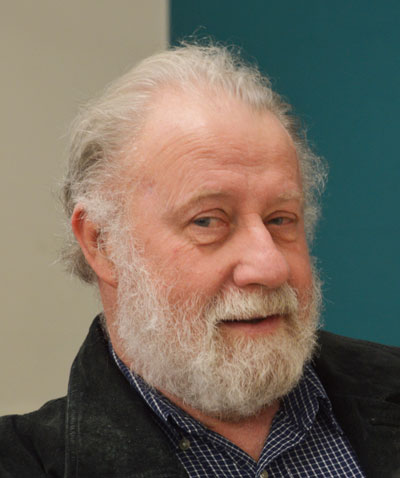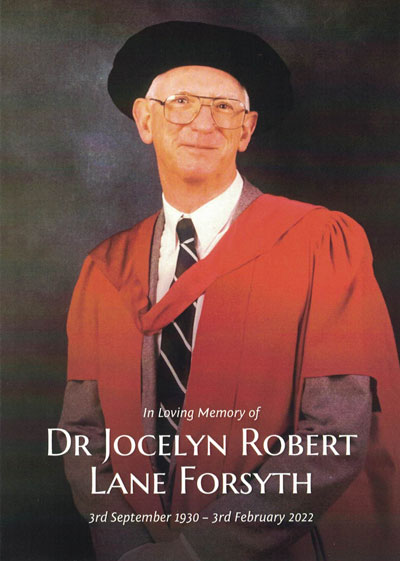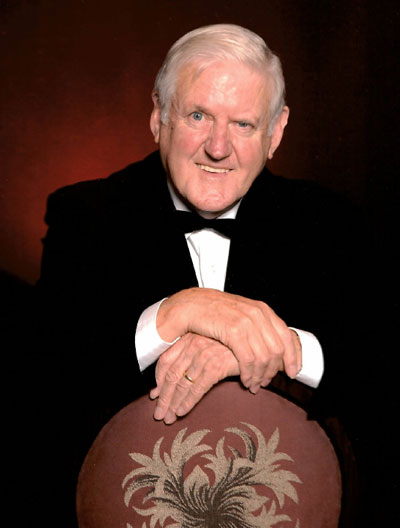Ian Stewart
Ian Stewart joined the NATA panel of Technical Assessors in 1996, by which time he was already on the Construction Materials Technical Group as an engineering geology expert, with particular expertise in petrographic analysis. He was a member the Accreditation Advisory Committee (AAC) from 1998-2013 and returned for a second term in 2018. Mr Stewart was a strong supporter of the NATA peer-assessment accreditation program for civil construction materials testing, and over the years supported over 50 assessments with many NATA Lead Assessors.

Mr Stewart worked in the Scientific Services Branch of the NSW RTA (later RMS, now known as TfNSW) for many years before starting his own consultancy – Stewart Geotechnical.
In his time with the RTA he was responsible for investigations carried out by the Branch for most major construction projects on the Hume, Federal and Barton Highways, including over 60 bridges. He served on many Standards Australia committees, including CE-12 (Aggregate and Rock for Engineering Purposes) and CE-15 (Geotechnical Site Investigations).
Mr Stewart was a well-respected, and highly regarded, technical expert in his field. NATA staff with whom he worked regarded him warmly, and found him to be generous with his knowledge, as well as noting that he was a great travel companion who loved a chat. His colleagues on the current Geotechnical and Civil Construction Materials Testing AAC considered him to be a very valuable member of the committee, who will be greatly missed.
Mr Stewart passed away unexpectedly on Saturday 26 February, and is sadly missed. NATA extends sincere condolences to his family.
Dr. JRL (Joc) Forsyth MBBS, Dip Bact, MD
The public health and medical fraternity lost, on 3rd February 2022, a stalwart of public health, with the passing of Dr Jocelyn (Joc) Forsyth, former Director of the Microbiological Diagnostic Unit (MDU) at the University of Melbourne.
Joc Forsyth’s career at the University of Melbourne started in 1968. When he retired in 1994, he was Associate Professor in Medical Microbiology and Director of the MDU.

Joc was an inspiring lecturer who launched many into life-long careers in public health. Joc was renowned for mimicking patients’ clinical signs and regaling students with stories of his own experiences with various infectious diseases. Fifty years on, a former student still remembers his Parasitology classes and seeing a photo of Joc and his father [a surgeon] removing a worm from the bile duct! Joc was particularly proud of his exam questions, testing both understanding and knowledge. Many of our current jurisdictional Chief Health Officers have been challenged by his dreaded ‘Question 7’ on field epidemiology!
Joc applied the same energy to his leadership of the MDU. He trained as a medical pathologist but and his wide interests ranged from sexually transmitted diseases to parasitology and water bacteriology. His commitment to public health ensured that the MDU was well positioned to meet the public health needs of Victoria and Australia.
The screening of refugees for exotic pathogens in the 1980s was a significant initiative under his leadership. This program led to the close working relationship with the Health Commission of Victoria (variously named thereafter) where MDU staff would regularly go on public health investigational site visits with commissioned officers, a relationship that did not exist in other jurisdictions. This arrangement brought together knowledge of environmental health, food technology, infection control and microbiology and provided the basis for many successful outbreak investigations.
Joc recognized the importance of surveillance data and the National Salmonella Surveillance Scheme (NSSS, later renamed National Enteric Pathogens Surveillance Scheme), the Victorian Hospital Pathogens Surveillance Scheme (VHPSS) and a Neisseria (antibiotic resistance) surveillance testing program were introduced in his time. Bacterial typing via Pulsed Field Gel Electrophoresis (PFGE) was introduced into MDU in 1993. This procedure was used extensively, before genomic sequencing, to provide information on relevant linkages on common environmental pathogens such as Legionella pneumophila. Joc also initiated a typing service for Listeria monocytogenes, one that guided investigations of all Australian outbreaks of listeriosis.
Joc was always aware of the need to assure test quality. This led MDU to seek NATA accreditation in 1972: first for Biological Testing and later, when the option was available, for Medical Testing. He was a strong supporter of NATA, sending staff to training courses and releasing them for assessments and other accreditation-related activities. Joc showed great foresight when he preserved the bacteria responsible for various outbreaks and notable infections, thus providing an invaluable resource for research. He would almost certainly have applied for the new Biobanking accreditation!
Joc organized the first parasitology quality assurance for the Royal College of Pathologists of Australasia (RCPA) in the early 1980s: providing further evidence of his commitment to quality assurance.
Joc Forsyth was one of the longest serving Directors of MDU.
Joc Forsyth was a scholar, teacher, visionary and a person of integrity. A remarkable man who led a remarkable life. He will be greatly missed.
Agnes Tan & Geoff Hogg
Rex Clark

Rex Clark who passed away recently was a very experienced Technical Assessor of lifting gear for both inspection bodies and mechanical testing facilities. He began as an Assessor in Inspection in 1995 and was very willing to conduct numerous assessments, particularly in the first decade of this century. His industrial experience was extensive, having worked for a lengthy period as an Inspector of Lifts and Cranes with the Victorian Government. Following this, he had been self employed for a number of years, again in the lifting gear area. He retired as an Assessor several years ago, after over twenty years of valuable service to NATA.
NATA extends sincere condolences to his family.